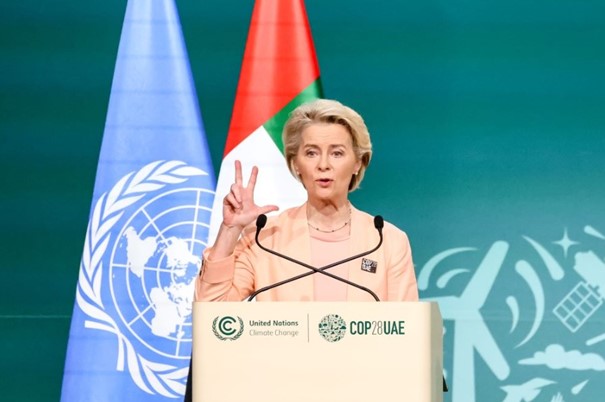
How Better Buildings Can Help von der Leyen Maintain Her Green Legacy
The EU President, Ursula von der Leyen, must prioritize boosting energy efficiency in the building sector to reduce reliance on fossil fuels and protect against geopolitical risks. This vision of a sustainable Europe is within reach if the European Commission advances its sustainable building policies—something that should be a top priority for von der Leyen when she returns from the summer recess.
As her second term begins in earnest, von der Leyen faces a critical five-year period to solidify both her and the EU's environmental legacy. The Commission's efforts so far have been commendable, with revisions to the Energy Efficiency Directive (EED) and the Energy Performance of Buildings Directive (EPBD) laying the groundwork for accelerating climate action and promoting energy efficiency in both public and private buildings under the Renovation Wave initiative.
In her "Political Guidelines" released shortly after re-election, von der Leyen showed promising signs of continuing to prioritize sustainable buildings as a climate solution. Notable among these is the pledge to establish the first EU Commissioner with direct responsibility for housing, alongside anticipation for the new "Circular Economy Act" aimed at creating demand for reused and recycled materials in the market.
However, von der Leyen must go further—not only in implementing existing policies but also in developing new ones—to fully harness the wide-ranging benefits of sustainable buildings. Buildings account for around 40% of total energy consumption in the EU and 36% of greenhouse gas emissions from energy, highlighting their potential to improve energy security, reduce reliance on fossil fuels, and mitigate geopolitical shocks.
Beyond their environmental impact, sustainable buildings can also address pressing issues such as the cost of living and unemployment crises in Europe. Energy-efficient renovations, for example, can make buildings more resilient to temperature extremes, thereby reducing energy costs across the continent—especially benefiting vulnerable and low-income households.
Moreover, the renovation of buildings can create millions of jobs across Europe. The European Commission estimates that for every €1 million invested in energy-efficient renovations, 18 jobs are created. With an annual investment of €275 billion needed to bridge the building renovation gap in the EU, this could lead to nearly 5 million additional jobs across the bloc.
Furthermore, there is a financial incentive for national governments to invest in the building sector. Data from Spain's government indicates that while supporting an unemployed person costs €20,000, funding a new construction role costs only €14,000—a significant saving. These figures underscore how building renovations can address governmental challenges while also creating better prospects for individuals.
Europe is at a pivotal moment in its history, just five years away from 2030, by which time the continent has committed to halving its emissions on the path to becoming the first climate-neutral continent. However, the recent parliamentary elections have revealed increased opposition to net-zero policies, making the journey more challenging.
Von der Leyen has a unique opportunity to secure her legacy by driving an energy-efficient, regenerative, and just transition in the built environment. The World Green Building Council's Europe Regional Network stands ready to continue supporting the Commission in creating tangible benefits at the individual, societal, and national levels over the next five years.
The blueprint for a brighter, more equitable, and sustainable future for Europe is ready. Now, it's time to make it a reality.